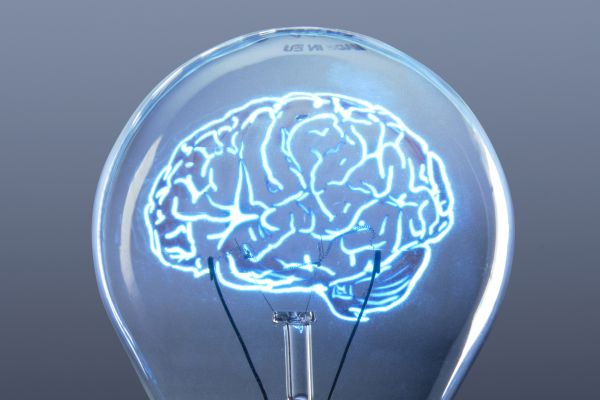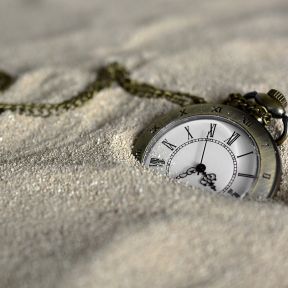Flow is a cognitive state where one is completely immersed in an activity—from painting and writing to prayer and surfboarding. It involves intense focus, creative engagement, and the loss of awareness of time and self.
The process of flow was discovered and coined by the Hungarian-American psychologist Mihaly Csikszentmihalyi. In the 1960s, Csikszentmihalyi studied the creative process and found that, when an artist was in the course of flow, they would persist at their task relentlessly, regardless of hunger or fatigue. He also found that the artist would lose interest after the project was completed, highlighting the importance of the process and not the end result.

Flow is the joy of doing something for the sake of doing it. After various interviews with poets, dancers, chess players, and others, Csikszentmihalyi wrote the book titled Flow and defined it as: “A state in which people are so involved in an activity that nothing else seems to matter.”
Despite being associated with creative tasks, flow can also be applied to education, sports, and the workplace. One of Csikszentmihalyi’s key points about flow is that a person needs to push oneself out of their comfort zone to induce it.
Because it’s a dynamic state, one has to constantly adjust the skill level, challenge, and complexity required for the activity. As you practice a skill, your level of mastery will change as will the feeling of flow. If your skill level has exceeded the activity, boredom will set in, which will disrupt the state of flow.
Flow can be viewed as a precursor for peak performance. Many elite athletes, for example, dive into the zone of flow, where their level of skill is in tandem with the challenge of their sport. As athletes improve in skill, their mastery improves as well, then reaching peak performance. Such high performance can also be applied to other domains as well.
In education, this can be seen in challenging assignments that lead to learning. In the area of sports, athletes are pushed to the limit to improve their mastery. In the workplace, a project can leave an employee feeling that they are in the zone of flow.
This is an endeavor that is engaged in for its own sake, there are no expectations or rewards or profit tied to the activity. You can even describe individuals as autotelic: This is a person who is not invested in fame, glory, materialism, or status. He is comfortable and content with the flow of life, including work, family, personal hobbies. He doesn’t look externally for praise or benefits.
Mindfulness and flow can be related. Both states require stilling the mind and relieving it of distractions and ruminations, mind states that fret about the past and the future. However, mindfulness keeps the attention on what you are doing. A mindful workout session, for example, would entail a focus on how your body moves and feels. The flow state can be slightly different, with the mind not focusing on anything in particular. The mind is lost in the process of doing.

People may not realize it but, according to Csikszentmihalyi, anyone can find flow. One can access flow by thinking of activities that would apply to this list below. Popular examples include sports, dancing, painting, and yoga. However, any activity could work, from welding to chopping wood. Ultimately, flow is a delicate balance between the tension of anxiety and the tedium of boredom.
Apart from setting clear goals, a person can engage in flow by becoming immersed and enjoying the immediate experience.
- Clear goals at every step
- Immediate see the fruits of one’s actions
- A balance between challenges and skills
- No agony over failure
- A disappearance of self-consciousness and distractions
- A sense of timelessness or distorted time
- The process is what’s enjoyable, not the result
It makes sense that people who engage in flow, have feelings of success, pride, and accomplishment—all of which encourage more learning and development. An activity done in flow is pegged as enjoyable or even ecstatic, though the joy isn't at the fore during the task because the person is too busy feeling immersed in the experience.
Flow can also be a tool for better emotion regulation. When a person is in a state of flow, there is little need for doubts or anxieties about oneself or the world in general; even the uncertainties of life fall away. Through the process of flow, a person chooses to focus on a task and gain a sense of autonomy over time, body, and mind.
Ask yourself if a certain task will fulfill a goal of yours. You have to want it. You must also stick to one goal, and you cannot multitask. To get there, think about the actions you are to perform to reach your goal. Are your actions deliberate? You can't perform these actions habitually in the beginning, but in time, the activity will become more of a habit.
Yes. You can go about your daily activities and dip into flow. Who doesn’t lose a sense of time while tending to the garden, while preparing a good meal, or even in good conversation with a friend. We can have a flow state experience with many of our day-to-day tasks and encounters. Watching TV and video gaming, however, are not on that list.
Pushing yourself to find the flow state can backfire. In fact, trying too hard or wondering whether you are in this state in itself is the antithesis of flow. We lose the balance between tension and skill level if we concentrate too much on the task.















